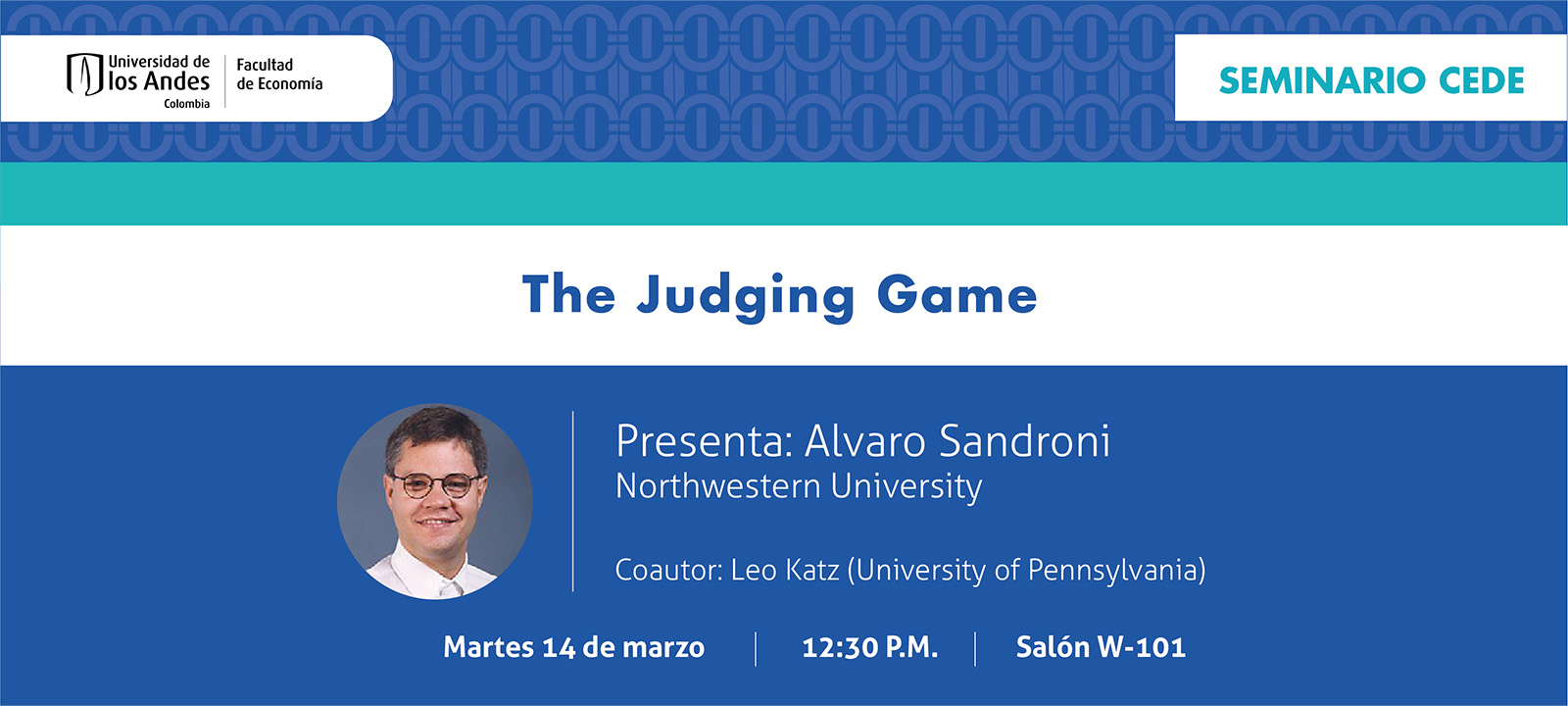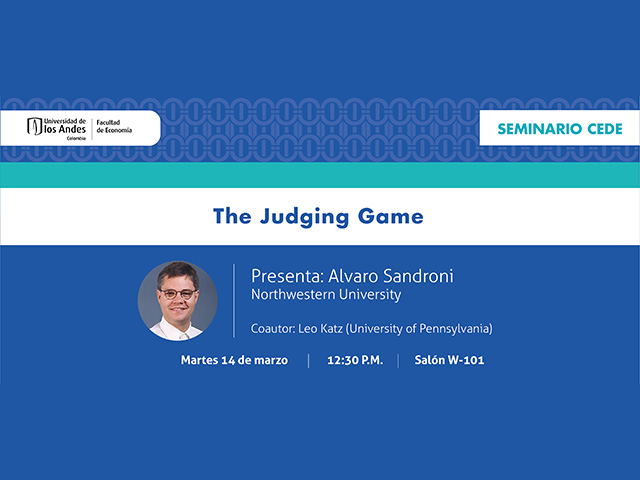Seminario CEDE - Alvaro Sandroni

We ask whether the decisions of a rational and impartial judge can be distinguished from a coin toss. The question is inspired by the logic of the selection effect: Cases that have a clear outcome tend to be settled out of court. But that means that the cases that tend to go to court are often decided by small shocks on perceptions, the equivalent of a coin toss. That conclusion changes when judges are biased in their prior beliefs. In that event, outcomes will be determined exclusively by the judge’s prior beliefs. Either way the outcome of the case tends to be decided as if it is unaffected by the merits of the arguments presented in court. However, taken to its logical conclusion, the selection effect leads to something we refer to as the paradox of open methods: if rational judges decide to evaluate the merits of the cases that go to court, they will come to regret this as wasteful effort and strictly prefer to ignore the merits of the case. But if judges ignore the merits of the case, and this becomes generally known and taken into account by the litigants, judges will come to regret doing so and end up strictly preferring to attend to the merits of cases. This paradoxical seesaw can only be resolved in a full game-theoretical model of strategic interaction between the judge and the litigants. We refer to this game as the Judging Game. The strength of the selection effect and the fraction of judges who evaluate the merits of cases can thus be determined by the equilibrium of the Judging Game.

